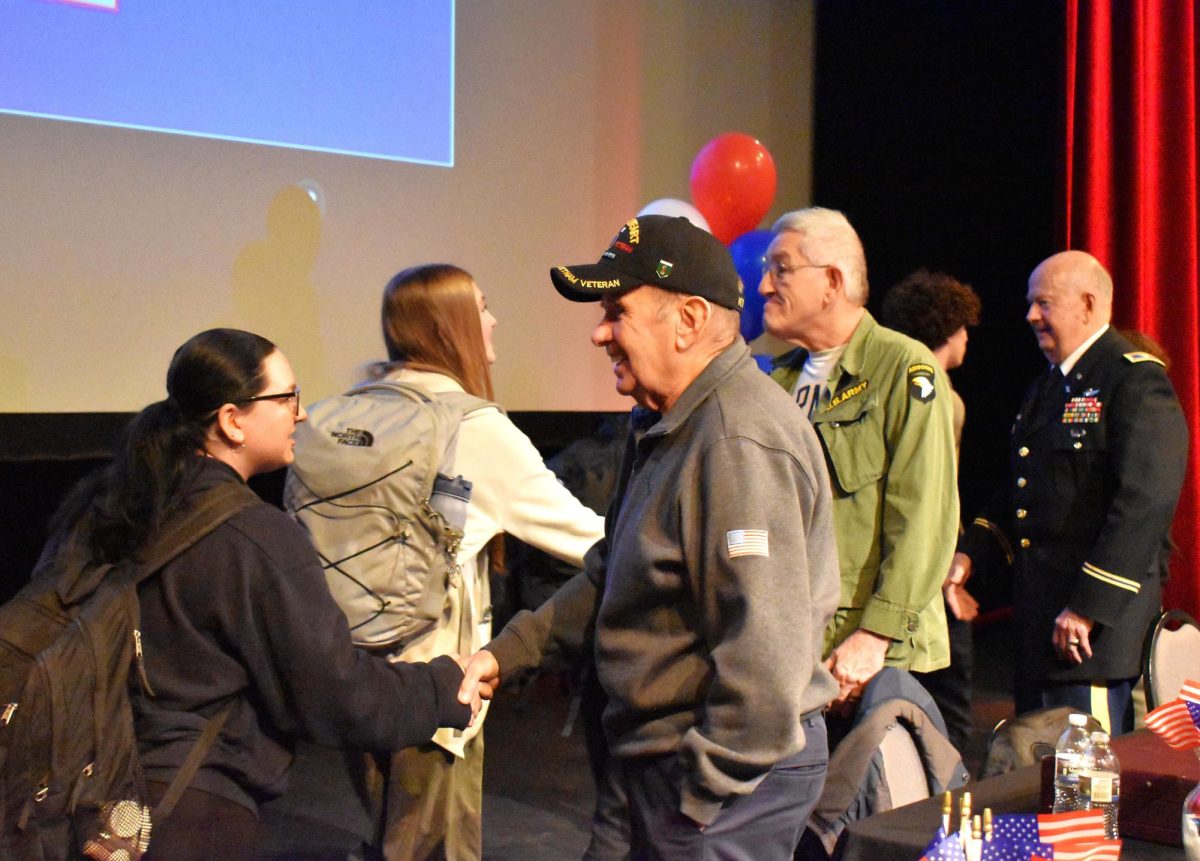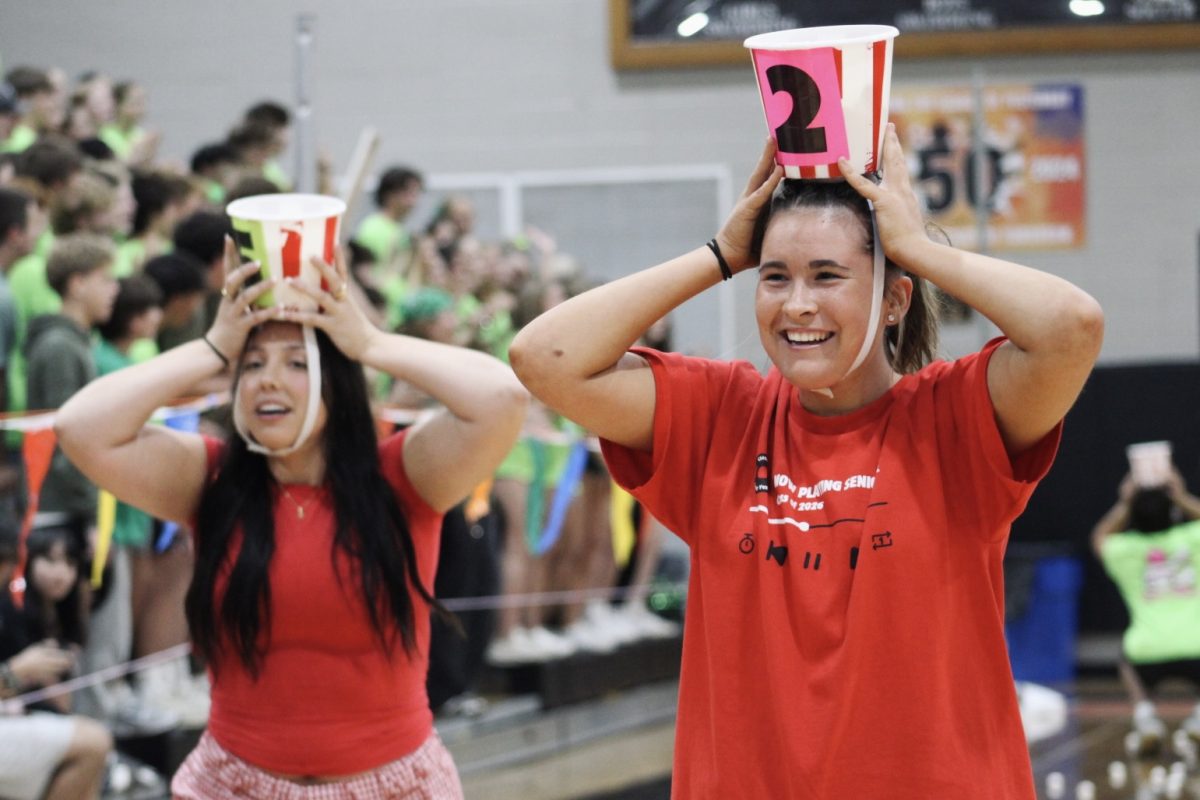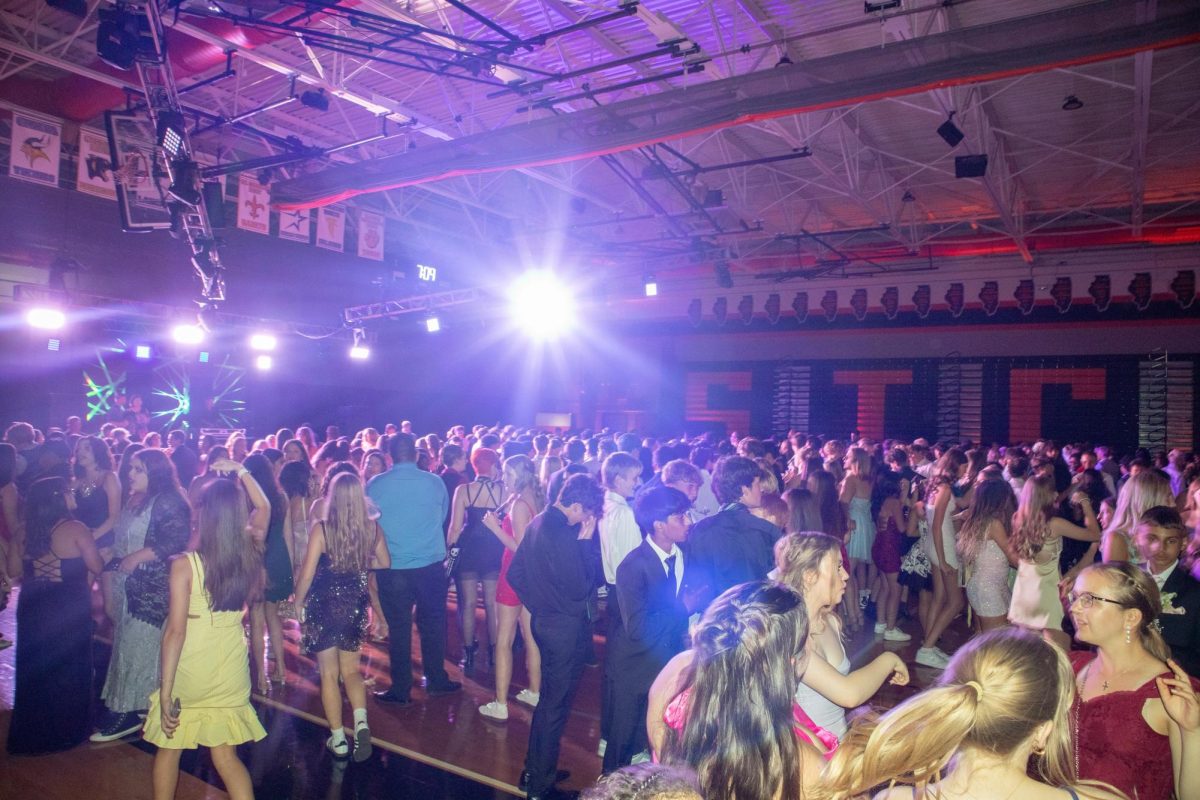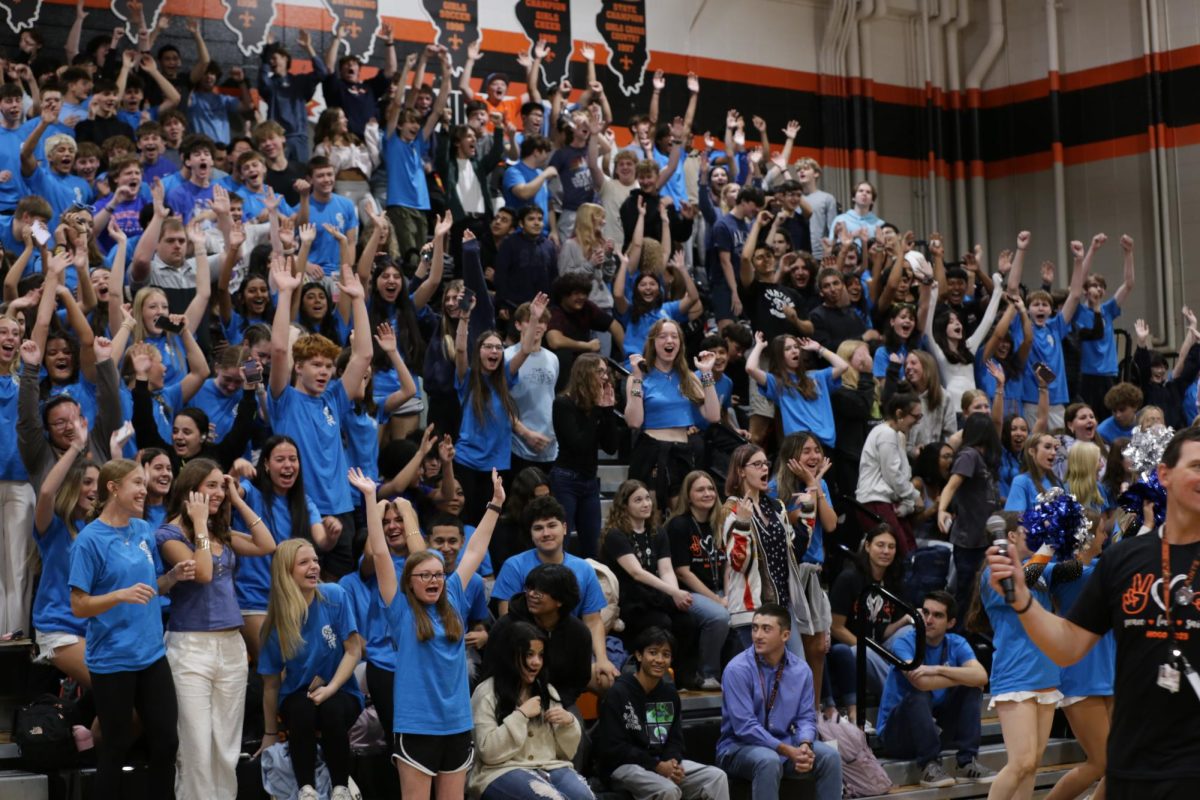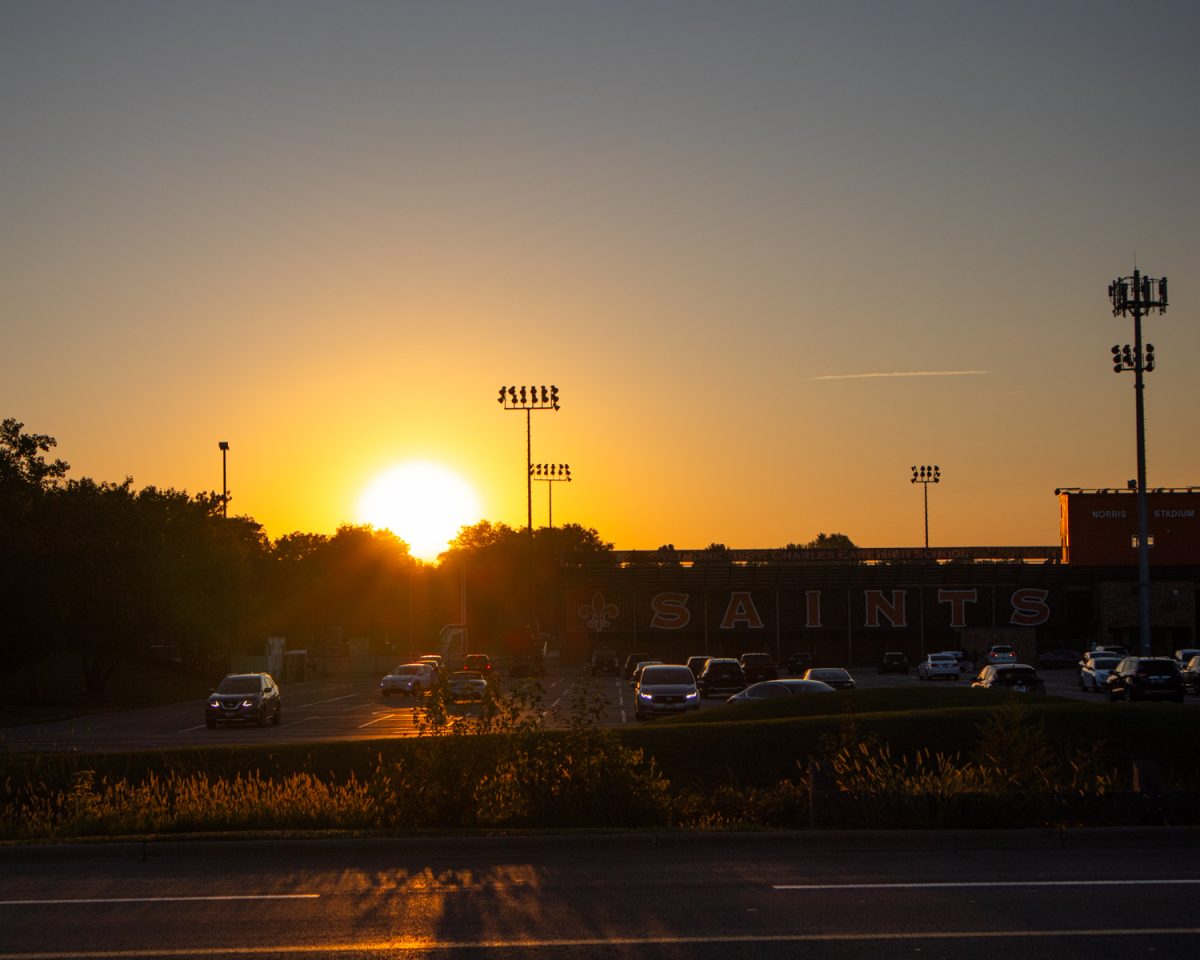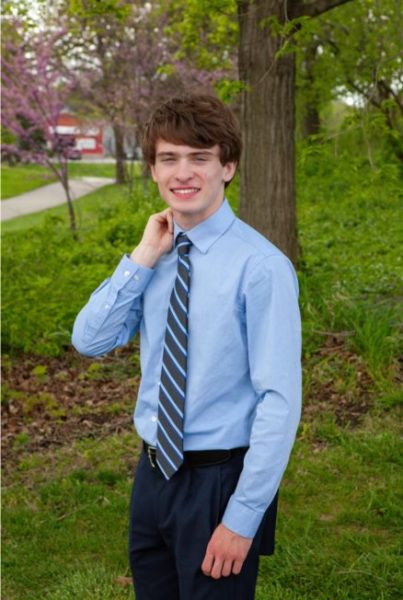On Feb. 6, 2025, St. Charles East had the privilege of hosting the Fox Valley Vietnam Veterans Talk in the Norris Cultural Arts Center, with both a morning and afternoon session offered for students currently enrolled in an American History course. There were five veterans in attendance: Colonel Jake Wyatt, Sergeant E5 Tom Brown and Infantry Mike Pikulyk of the Army and Petty Officer 3rd Class Richard Zwaislak of the Navy and First Lieutenant Combat Engineer Ron Sassano of the Marines.
Wyatt, who served from 1970 to 1994, began the event by discussing his enlistment in the Army to become a pilot. During flight school, he was notified that roughly a quarter of pilots would not return home from the war, a statistic proven firsthand as three of his classmates died within a day of reaching Vietnam. Flying two to three missions a week, Wyatt saw the violence of war firsthand as his plane was fired upon during supply runs to South Vietnamese villages, one of which would be massacred by the Viet Cong for accepting American aid. Following the war, Wyatt continued to serve in the Army through Operation Desert Storm, a military assault to liberate Kuwait from Iraqi forces during the Gulf War. He noted that while he came home from the Gulf War a hero, his return from the Vietnam War was much colder.
Following Wyatt was Pikulyk who, despite his lack of American citizenship, found himself drafted into the Army in 1970. Assigned to the 101st Airborne Division, Pikulyk was vocal about his displeasure of being stuck with “those gung ho guys.” His poor luck continued until his return from Vietnam in 1971, as he found himself undersupplied, was given a jammed rifle and almost fell victim to a booby trap composed of a grenade and a tripwire. However, despite his misfortunes overseas, Pikulyk remained a jovial presenter, telling a Vietnam-themed joke that had the audience roaring with laughter. Nevertheless, Pikulyk touched on the psychological effects the war had on soldiers coming home and questioned the necessity of the conflict.
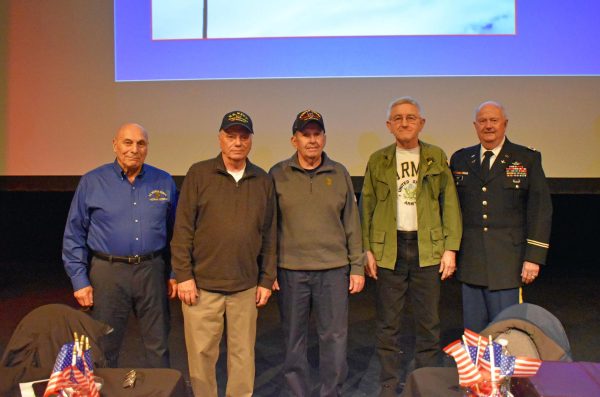
Brown’s presentation was next, focusing heavily on the logistics of the war compared to personal stories. Drafted in 1966, Brown’s time in Vietnam was one of guerilla warfare, navigating jungles and rice pads while avoiding punji pits and tripwire traps in pursuit of the Viet Cong. Brown’s time in Vietnam would end in 1968, as his platoon found themselves ambushed while entering a jungle, leaving him with 16 broken bones and a concussion that would both get him out of the war and presented with a Purple Heart, a military award for those who were wounded or killed during their service with the military.
Closing the event was Zwaislak, who enlisted in the Navy in 1972 in order to avoid being drafted into the Army, where he was afraid his small size would make him a “tunnel rat.” However, while Zwaislak avoided his fear of crawling into Viet Cong tunnels with nothing but a pistol and a flashlight, he still found himself petrified by the realization that for the first time in his life, he would have zero control over whether he came back alive or not. Serving on the USS Enterprise, Zwaislak supported Operation Linebacker II before shifting focus towards Laos following the Vietnamese ceasefire up until June of 1973. He closed his discussion by emphasizing the importance of music to soldiers during Vietnam, playing an excerpt of The Animals’ “We Gotta Get Out of This Place,” a sentiment that many soldiers agreed with while in Vietnam. He then concluded with Scott McKenzie’s “San Francisco,” the hopeful song that was broadcast over the USS Enterprise as the crew set sail back to America.
The event concluded with a celebration of all five veterans, with students lining up to shake hands and thank them for their service. Between the two sessions, the veterans were treated to a special luncheon with volunteers from the Social Studies National Honor Society, where the students were able to ask questions about the veterans’ lives and experiences in Vietnam.
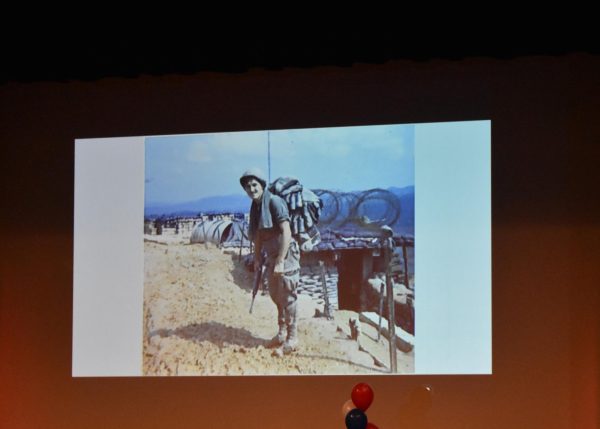
Equally humbling compared to the age of the soldiers was the grim face of death over the war. 58,220 Americans died during the Vietnam War, and the presentation only emphasized that each of those numbers was an individual with a life and family. A close friend of Zwaislak failed to return to ship mere days before the ceasefire, leaving behind a daughter who would grow up without a father; Wyatt had three classmates die within a day, requiring him to write letters of consolation to their wives back home. Taking the 25 percent death rate of Army pilots and applying it to St. Charles East, it would mean that out of a graduating class of 500 students, 125 of them would never live to see graduation day. Even out of the soldiers who returned home, they came back to wives they hadn’t seen in months and children they missed the birth of. Many more suffered from injuries received abroad, PTSD and exposure to the carcinogenic chemical Agent Orange, the effects of all of which still linger almost 50 years since the war’s end.
As Wyatt put it, “Vietnam was a political war.” The conflict was brutally long, and the necessity of American involvement in the war is a topic still heavily debated today. However, despite their reasons for joining the military, each of the men on stage and so many other veterans across the country answered the call and did their job. They had the courage to go overseas and fight a foreign enemy in unfamiliar territory, knowing full well that even if they did survive they could be welcomed home as “baby killers” rather than heroes. These men had remarkable bravery and were proudly celebrated by St. Charles East High School as American heroes.


